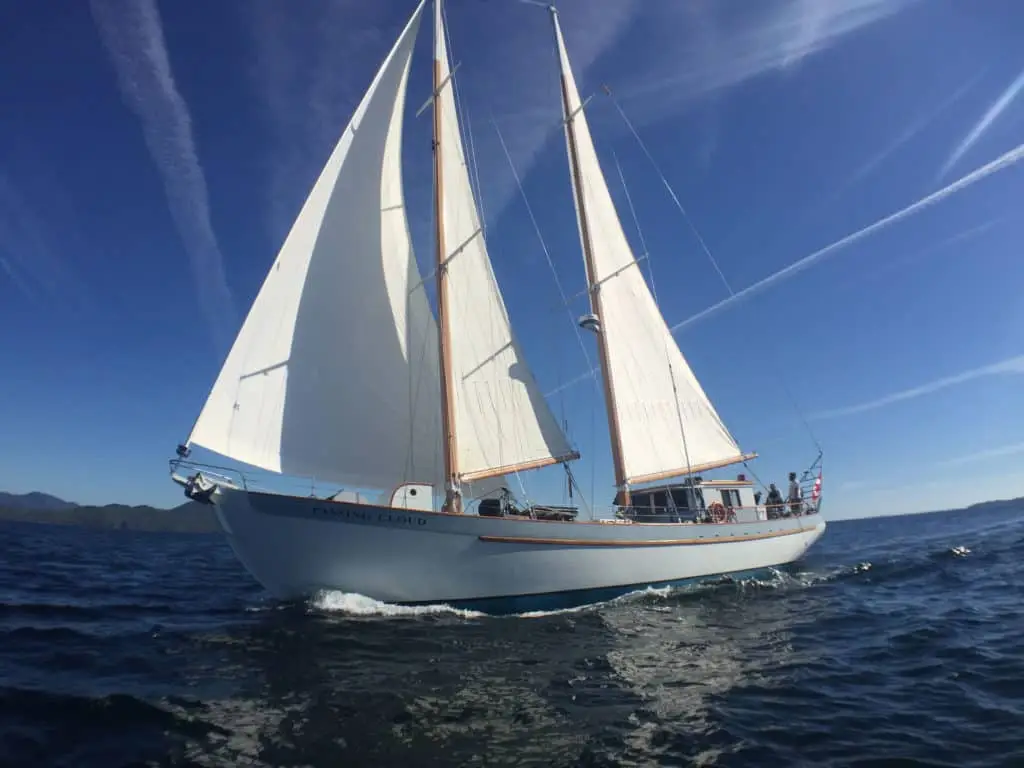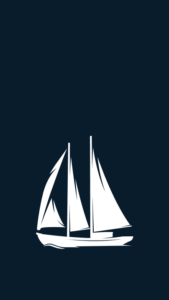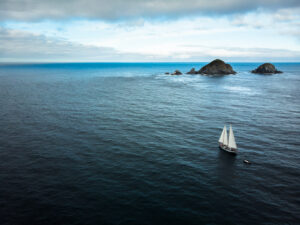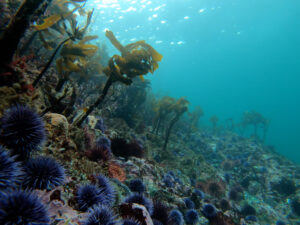Passing Cloud Shipyard Overview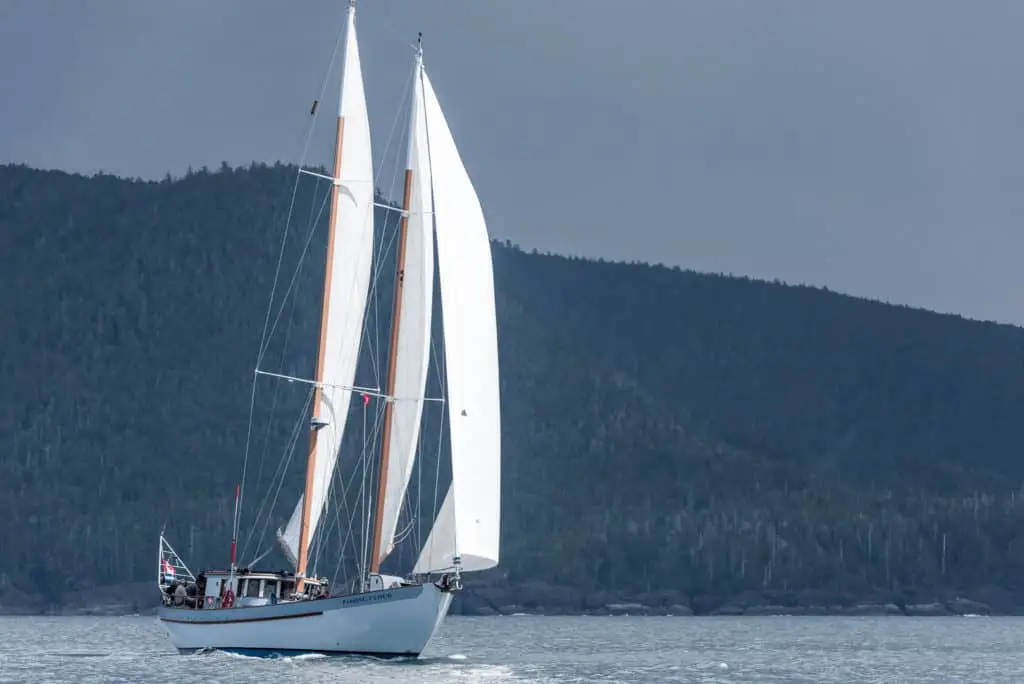
Outer Shores’ expedition season runs for a very busy eight months of the year. It might be tempting to think that we all get a nice four-month vacation at the end of that but, alas, it isn’t so. The “off-season” is when our resident celebrity, Passing Cloud, gets some very special care.
Passing Cloud was built to handle the rigours involved with sailing up and down British Columbia’s rugged coastline. But even with some ongoing maintenance, intense physical conditions like cold, wet weather and hot, direct sun take their toll. As does all the normal wear and tear that comes with nearly 200 expedition days each year. Our brief off-season provides an opportunity to do a lot of helpful things that can’t be done while sailing the high seas.
It all starts once the last guest has disembarked and we’ve reached home. Our crew members start by removing all of the food, bedding, kayaks, crab traps, and other gear. Everything gets either washed and stowed or replaced as necessary. Passing Cloud then gets a tent-like covering, built by our industrious shipwright Eric Burton, which protects her from the elements for the next few months. By keeping the winter weather off, this cover reduces the amount of maintenance Passing Cloud needs and provides a dry workspace for winter projects.
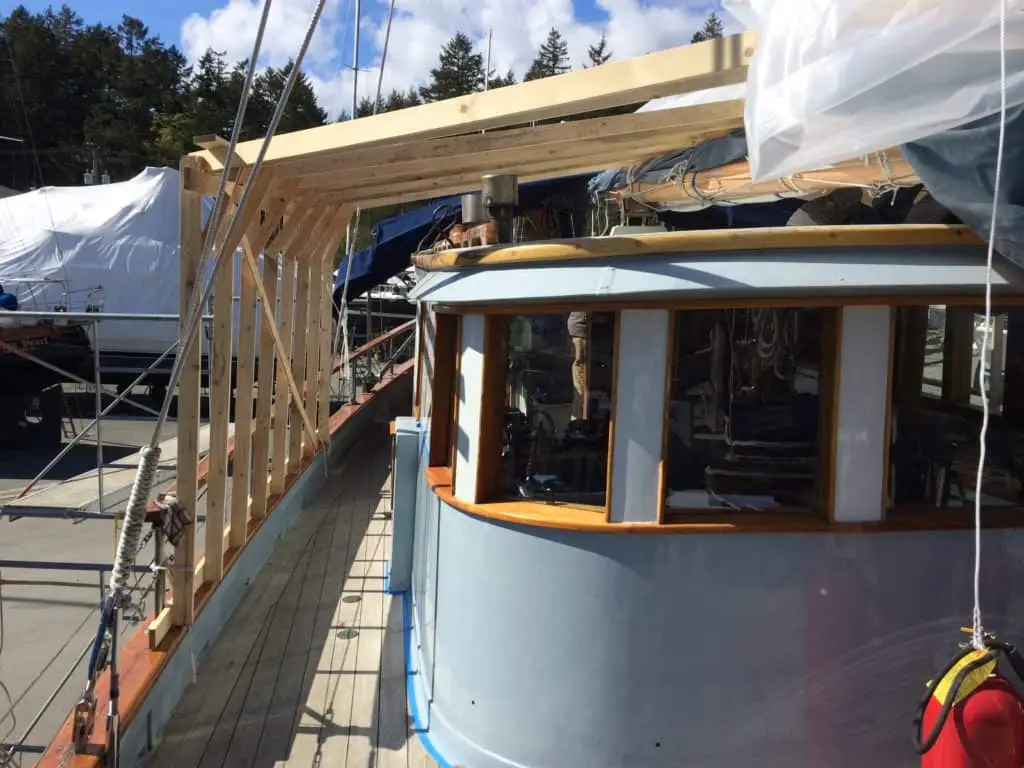
Throughout the year, there’s an ongoing conversation with owner Russell Markel in terms of a prioritized project list. “We’re figuring out what things we have to do, what we’d like to do, and what can wait another year,” he says. “There’s a lot of debate and horse swapping but the most important projects are always those things that are good for the health of the ship and the safety of our guests.”
This year, four projects made it to the top of Russell’s list.
First, and most important, was upgrading Passing Cloud’s freshwater, blackwater and bilge-pumping system by installing new tanks, hoses, and fittings, and simplifying the routes to improving access. “We’re trying to make everything as modern and efficient as we can,” says Russ. “These are things guests will never notice but are so important because these systems are the foundation of the ship.”
The second project to make the cut will be much more obvious–the addition of four 140 watt solar panels, that will be mounted on top of the wheelhouse. These panels fit in with Outer Shores’ goal of minimizing its carbon footprint. “We won’t have to run the engine as much to charge our batteries,” says Russell. “This means reduced fuel costs and fewer carbon emissions.” The panels are designed that crew will be able to work or walk on top of them. They’re also state-of-the-art, connecting to Bluetooth energy-tracking software.
The third project is all about metal. Passing Cloud has a lot of original, welded fittings on her exterior. Most of these pieces are being removed and replaced with custom-fabricated pieces, including all stanchions and lifelines, the pulpit, and the crutches that hold up the booms when the sails aren’t deployed. New midship cleats are also being installed, which the crew is particularly excited about! A big thank you to Strait Metal in Sidney, and the Port Townsend Foundry, for their help with these projects.
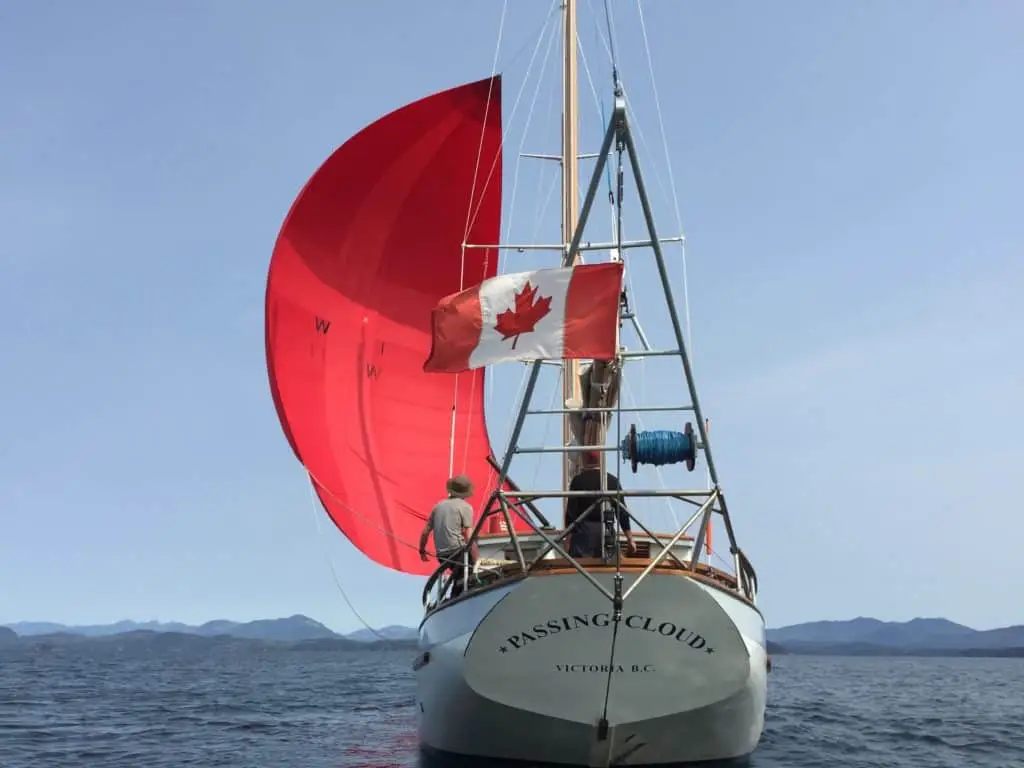
The fourth project is the recommissioning of the huge cruising spinnaker by adding a sock that will help deploy and douse the sail. This will allow for more frequent use of this light-wind sail, which also means more sailing, less fuel consumption, and fewer carbon emissions.
Once these projects are complete, and a month or so before the first expedition of the year, Passing Cloud gets hauled out of the water for annual inspections and paint and varnish
Passing Cloud is a wooden boat and under certain circumstances, wood decays. Every year, we hire a marine surveyor to conduct a thorough inspection of the ship, including a detailed examination of the underwater portion of the hull. Using a soft hammer, the surveyor taps every plank on the ship. From the sound and feel of the hammer testing, he can ascertain if the wood is sound or not. It’s a testament to the Passing Cloud’s integrity that only one of her planks has ever had to be replaced since launching in 1974.
Finally, as a Transport Canada certified passenger vessel, each year Passing Cloud is also inspected by a Transport Canada inspector and issued an annual safety inspection certificate. This process includes inspection and certification of fire extinguishers, engine room fire suppression system, smoke and CO2 detectors and alarms, life raft, radio, and electrical system.
There’s a lot of responsibility in maintaining a 70-foot classic wooden schooner. However, when she’s back in the water and sailing like a dream on her first expedition you know she’s worth that extra loving. We should all be able to enter our 44th years looking so fit and moving as gracefully as ever.
